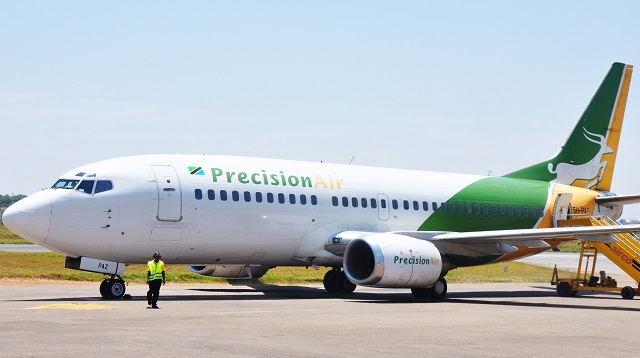By THE INDEPENDENT UG
ANALYSIS | FELIX THOMPSON | Export Development Canada (EDC) has initiated legal proceedings in the UK High Court against a beleaguered Tanzanian airline company, asserting that the airline owes nearly US$26 million under an aircraft financing agreement.
In late 2012, the Canadian export credit agency (ECA) provided direct financing, enabling Tanzanian aviation firm Precision Air to acquire two model 42-600 jets from the French-Italian manufacturer ATR.
The transaction was structured to involve a special purpose vehicle, Antelope Leasing, acting as the borrower and holding the aircraft as collateral on behalf of EDC.
Precision Air was obligated to make rental payments for the aircraft, with the legal title for the planes set to transfer to the airline once the loans were fully repaid.
However, as disclosed in filings submitted to the UK High Court in December, Precision Air defaulted on its payments to EDC under the lease facility and has ignored multiple payment requests since 2021.
EDC is pursuing US$13 million under a leasing deal for the first aircraft, encompassing unpaid rent of US$11.7 million and a termination sum of US$1.3 million.
For the second jet, EDC alleges it is owed nearly US$11.3 million in unpaid rent and a termination payment exceeding US$1.6 million. In total, EDC seeks to recover nearly US$26 million.
In a financial statement dated September 2022, the firm noted that the planes had largely been out of service, and efforts were underway to “revive the aircraft for returning to [the] lessor.”
“These aircraft were grounded since 2017 due to technical issues and are not part of the active fleet,” it added.
When questioned by GTR about the current location of the two ATR jets, an EDC spokesperson declined to comment, stating, “At this time, we are limited in what we can share.”
Patrick Mwanri, Precision Air’s CEO and managing director, could not be reached for comment.
EDC’s support, typically more cost-effective than commercial bank financing, backed the sale of equipment by Pratt & Whitney, a North American engine manufacturer with facilities in Canada.
The deal also supported a fleet modernization program at Precision Air, with the firm’s website still highlighting its status as the “first airline in the world” to operate the 42-600 model of ATR aircraft.
Founded in 1993, Precision Air serves destinations across Tanzania, Kenya, and Comoros. Presently, it is partly owned by Kenya Airways, holding a 41% stake.
In recent years, the East African firm has faced financial and reputational challenges. Two years ago, a Precision Air jet crashed into Lake Victoria, resulting in the death of 19 people. A Tanzania government report attributed the incident to the actions of the pilots and adverse weather conditions.
The company’s finances were further strained by the Covid-19 pandemic, as the broader group incurred a net loss of about Tsh45.1 billion (approximately US$17.7 million) in the year up to December 2020, according to its latest accounts.
“The group and company experienced significant losses for the past six years,” the firm stated, acknowledging that the effects of the Covid-19 crisis “crippled” its ability to keep up with the cost of maintaining equipment.
In the report, signed and dated September 2022, Precision Air admitted that these events or conditions indicate a material uncertainty that may cast “significant doubt” on its ability to continue as a going concern.
The airline also acknowledged its struggle to pay off debts incurred to modernize and expand its fleet of jets.
In 2008, a few years before the EDC deal, the company secured a US$127 million loan agreement with Citi and Finland’s development lender, Finnfund. This transaction, involving a special purpose vehicle, Swala Leasing and Finance Limited, supported the purchase of seven ATR planes.
In its most recent financial statement, Precision Air disclosed that it had been “in breach” of the terms of loan agreements with EDC, Citi, and Finnfund due to “significant delays in repayments of principal and interest.”
Export credit agencies (ECAs) play a crucial role in the aerospace sector due to the high-value nature of the deals, yet these agencies can be left exposed when borrowers encounter financial difficulties.
In February 2023, Mexico’s Aeromar Airlines ceased all operations, citing substantial financial losses and an inability to secure new, long-term investment. The airline had amassed a total debt of US$370 million, half of which was owed to the Mexican government in unpaid tax, along with US$26.5 million due to Mexico City International Airport.
As reported by the industry publication ch-aviation, EDC sought the Superior Court of Mexico to seize three ATR planes from the now-defunct Mexican regional airline in the weeks preceding its eventual demise.
Source: Global Trade Review







Discussion about this post